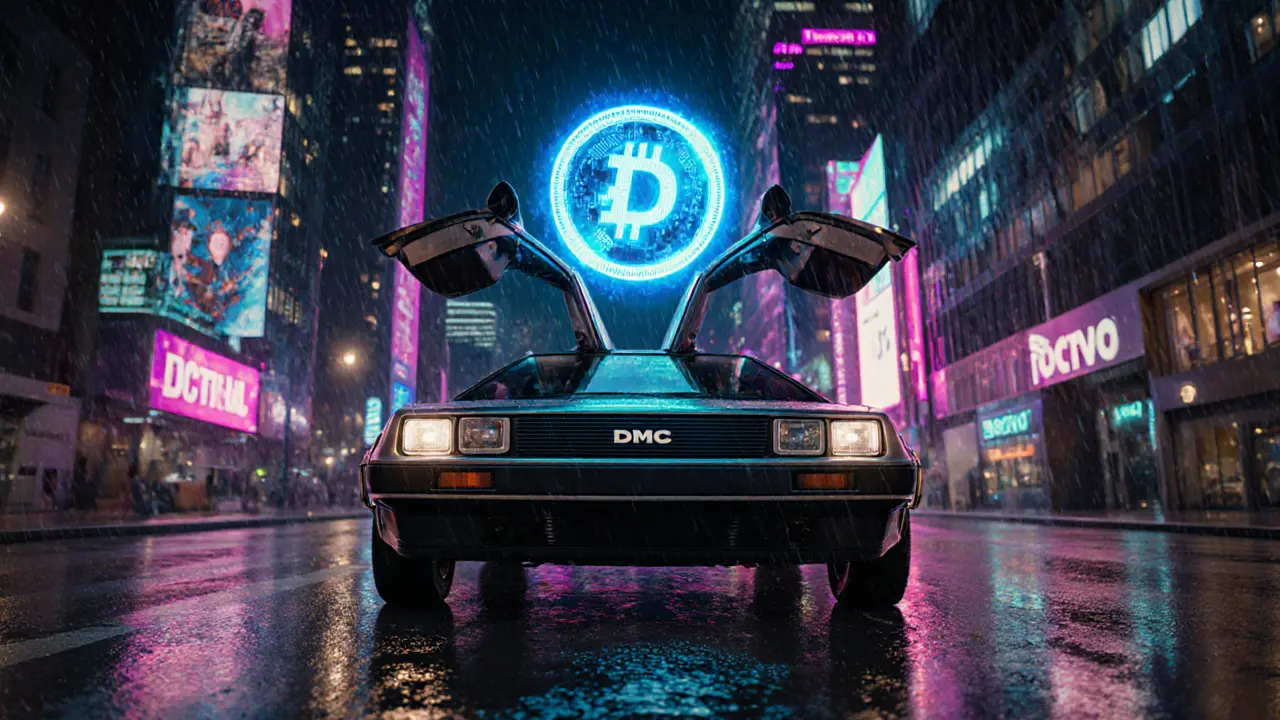Discover what the DeLorean (DMC) crypto coin is, how its staking and vehicle reservation system work, and why it matters beyond speculation.
Read MoreVehicle Reservation Token Explained
When working with vehicle reservation token, a digital asset that grants the right to book a vehicle on a blockchain‑based platform. Also known as car booking token, it links reservation data to smart contract logic, you instantly get a traceable, tamper‑proof proof of entitlement. The underlying blockchain, a distributed ledger that provides transparent, immutable records supplies the backbone for every token transfer. On top of that, a smart contract, self‑executing code that enforces booking rules without a middleman automates the entire reservation workflow—from checking availability to confirming payment. Finally, tokenomics, the economic design that defines supply, incentives, and pricing determines how many tokens are issued, how fees are collected, and what rewards users receive for frequent bookings. Together these pieces create a system where a token isn’t just a payment tool; it’s a complete reservation protocol that can scale across fleets and markets.
One of the biggest advantages of a vehicle reservation token is the ability to combine real‑time availability with decentralized trust. Because each token movement is recorded on the blockchain, you can query the ledger to see which cars are free, how long a reservation will last, and whether the token holder has met all required conditions. Smart contracts handle edge cases automatically—if a user tries to double‑book a car, the contract rejects the transaction before any funds move. Tokenomics can also embed loyalty programs: users who hold a certain amount of tokens might earn discount tiers or priority access during peak hours. This creates a feedback loop where active participants boost the token’s utility, which in turn raises its perceived value. For fleet operators, the model reduces administrative overhead, cuts fraud, and opens new revenue streams through token‑based subscriptions.
How NFTs and Decentralized Finance Extend the Token’s Reach
Non‑fungible tokens (NFTs) add a layer of uniqueness that’s useful for special‑edition vehicles, premium services, or limited‑time offers. By minting an NFT that represents a specific car model or a VIP seating package, providers can sell exclusive rights that are tradable on secondary markets. This flexibility attracts collectors and investors who might not need the car daily but want exposure to its utility. Meanwhile, decentralized finance (DeFi) protocols can enable token holders to stake their reservation tokens, earn yields, or borrow against them to finance other mobility projects. Integrating DeFi brings liquidity to what would otherwise be a locked‑up asset, letting users unlock cash without surrendering booking rights. The synergy between vehicle reservation tokens, NFTs, and DeFi paints a picture of a fully interoperable mobility ecosystem where ownership, access, and finance blend seamlessly.
Below you’ll find a curated collection of articles that dig deeper into each of these building blocks—exchange reviews, tokenomics breakdowns, NFT use cases, and real‑world examples of blockchain‑enabled vehicle reservations. Whether you’re a developer, a fleet manager, or just curious about how crypto can reshape transport, the posts ahead give practical insights and step‑by‑step guidance to help you navigate this emerging space.
